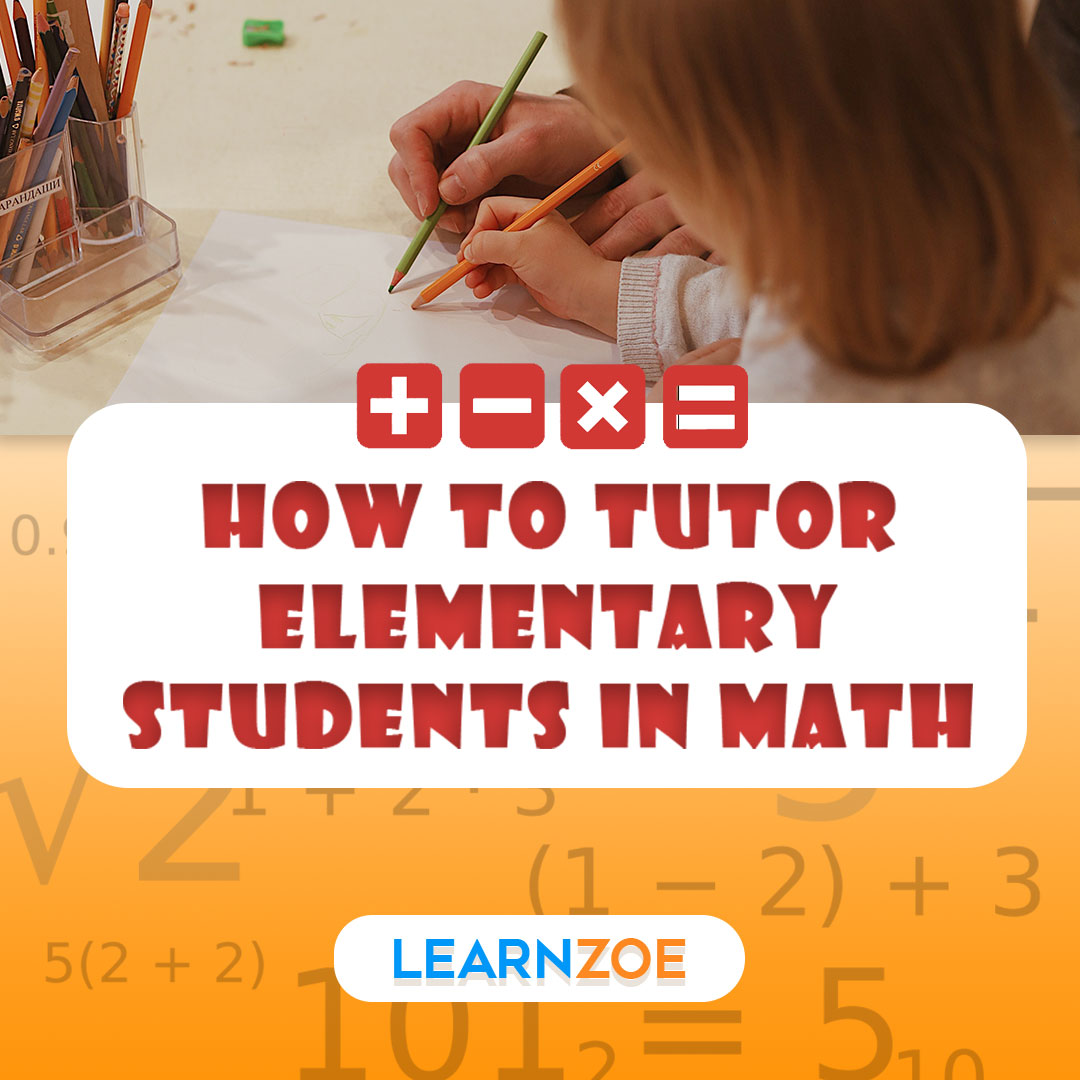How to Tutor Elementary Students in Math

Mathematics is an essential subject that lays the foundation for a child’s cognitive development. Elementary students need a strong understanding of math concepts to succeed in higher grade levels. However, some children may struggle with grasping mathematical concepts, leading to frustration and lacking confidence in their abilities. It is where tutoring can make a significant difference. This article will explore the importance of tutoring elementary students in math and how it can unlock their potential.
Tutoring Elementary Students in Math: Why Is It Important?
Tutoring plays a crucial role in helping elementary students excel in math. Here are several reasons why tutoring is essential:
Building a Strong Foundation
Tutoring provides personalized attention, allowing students to strengthen their foundational math skills. With focused guidance, students can fill in any gaps in their understanding and develop a solid foundation for future math concepts.
Individualized Instruction
Teachers often need more time to address each student’s needs in a classroom setting. Tutoring offers personalized instruction tailored to students’ unique learning styles and paces. This individualized approach ensures that students receive the attention they need to grasp math concepts effectively.
Boosting Confidence
Mathematics can be daunting for elementary students, and it may lead to a loss of confidence. Tutoring creates a supportive environment where students can ask questions without fear of judgment. As they gain a deeper understanding of math, their confidence grows, leading to improved performance and a positive attitude toward the subject.
Bridging Gaps and Overcoming Challenges
Tutoring helps identify specific areas where students struggle and provide targeted interventions. Whether fractions, geometry, or word problems, tutors can break down complex concepts into manageable parts and use various teaching strategies to overcome challenges.
Fostering a Love for Math
When elementary students receive individualized attention and gain mastery over math concepts, they are more likely to develop a love for the subject. Tutoring can instill a sense of curiosity and excitement, making math enjoyable and motivating students to explore it further.
How Does Tutoring Elementary Students in Math Work?
Tutoring sessions are designed to be engaging and interactive, employing various strategies to facilitate effective learning. Here’s an overview of how tutoring elementary students in math typically works:
Initial Assessment
Before tutoring begins, an initial assessment is conducted to gauge the student’s current math skills and identify areas of improvement. This assessment helps tutors tailor their instruction to the student’s specific needs.
Goal Setting
Based on the assessment results, tutors work with students to set achievable goals. These goals serve as a roadmap for the tutoring sessions, ensuring progress is tracked and celebrated.
Individualized Lesson Plans
Tutors create personalized lesson plans that align with the student’s goals and learning styles. These plans include hands-on activities, visual aids, and interactive exercises to make learning math engaging and enjoyable.
Regular Practice and Reinforcement
Consistent practice is crucial for developing math skills. Tutors assign homework and provide practice materials to reinforce the concepts covered during tutoring sessions. Regular practice helps students retain information and apply it to real-world scenarios.
Ongoing Support and Feedback
Tutors provide ongoing support, guiding students through challenging problems and offering feedback to help them improve. By implementing a continuous feedback loop, students can remain focused and steadily advance on their math journey.
Frequently Asked Questions (FAQs)
Q: How often should elementary students attend math tutoring sessions?
A: The frequency of math tutoring sessions for elementary students depends on their needs and goals. Students attend tutoring sessions once or twice a week for optimal progress.
Q: How long does a math tutoring session for elementary students last?
A: Elementary students’ Math tutoring sessions usually last 60 to 90 minutes. The duration may vary based on the student’s age, attention span, and depth of the covered concepts.
Q: What qualifications should I look for in a math tutor for my elementary student?
A: When selecting a math tutor for an elementary student, look for someone with a strong background in mathematics and experience working with students of a similar age group. Additionally, effective communication skills, patience, and a passion for teaching math are essential qualities to consider.
Q: How can tutoring in math benefit struggling elementary students?
A: Tutoring provides struggling elementary students the support they need to overcome challenges and build confidence in their math abilities. With personalized instruction and targeted interventions, tutors can bridge gaps in understanding and help students succeed.
Q: Can tutoring in math improve an elementary student’s overall academic performance?
A: Yes, tutoring in math can positively impact an elementary student’s overall academic performance. As math skills improve, students often experience a boost in problem-solving abilities, critical thinking skills, and logical reasoning, which can also extend to other subjects.
Q: Is online math tutoring effective for elementary students?
A: Online math tutoring can be highly effective for elementary students when facilitated by qualified tutors who use interactive tools and engaging platforms. It provides flexibility and convenience while still offering the benefits of personalized instruction.
Conclusion
Tutoring elementary students in math is a powerful way to unlock their potential and foster a love for the subject. By providing individualized instruction, bridging gaps, and building confidence, tutoring helps students develop a strong foundation in math. With the support of a skilled tutor, elementary students can overcome challenges, excel academically, and embrace the wonders of mathematics.
